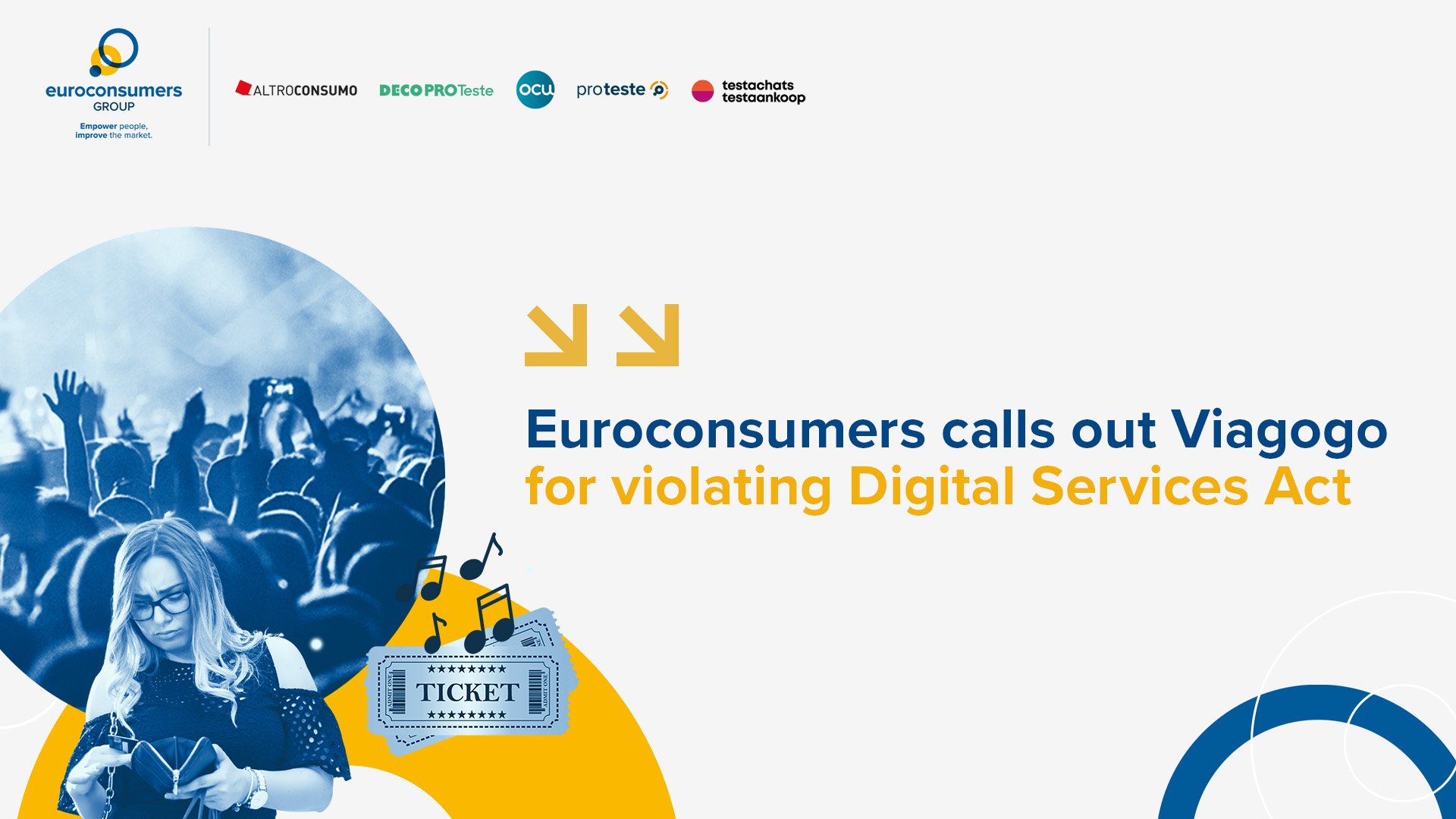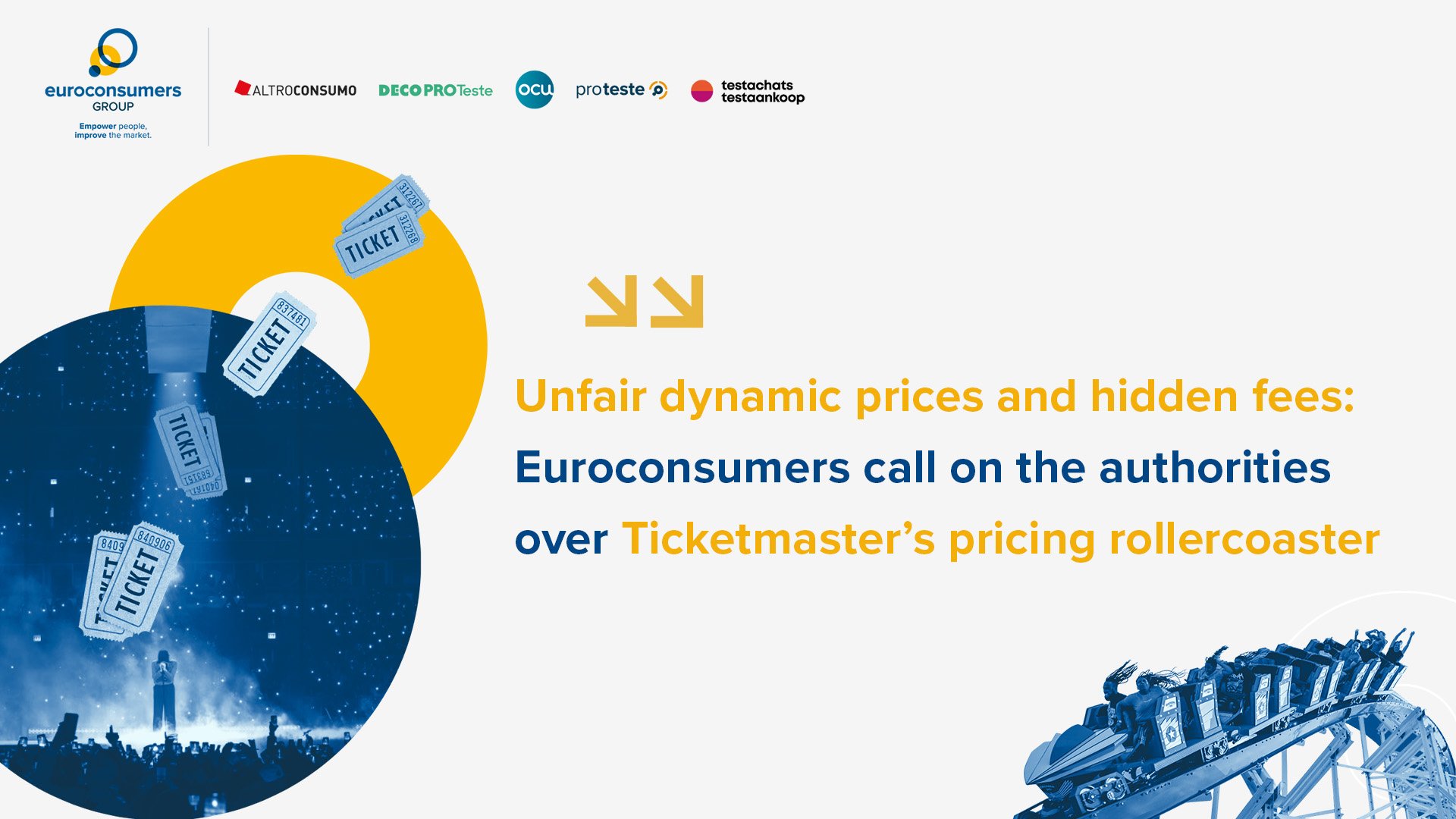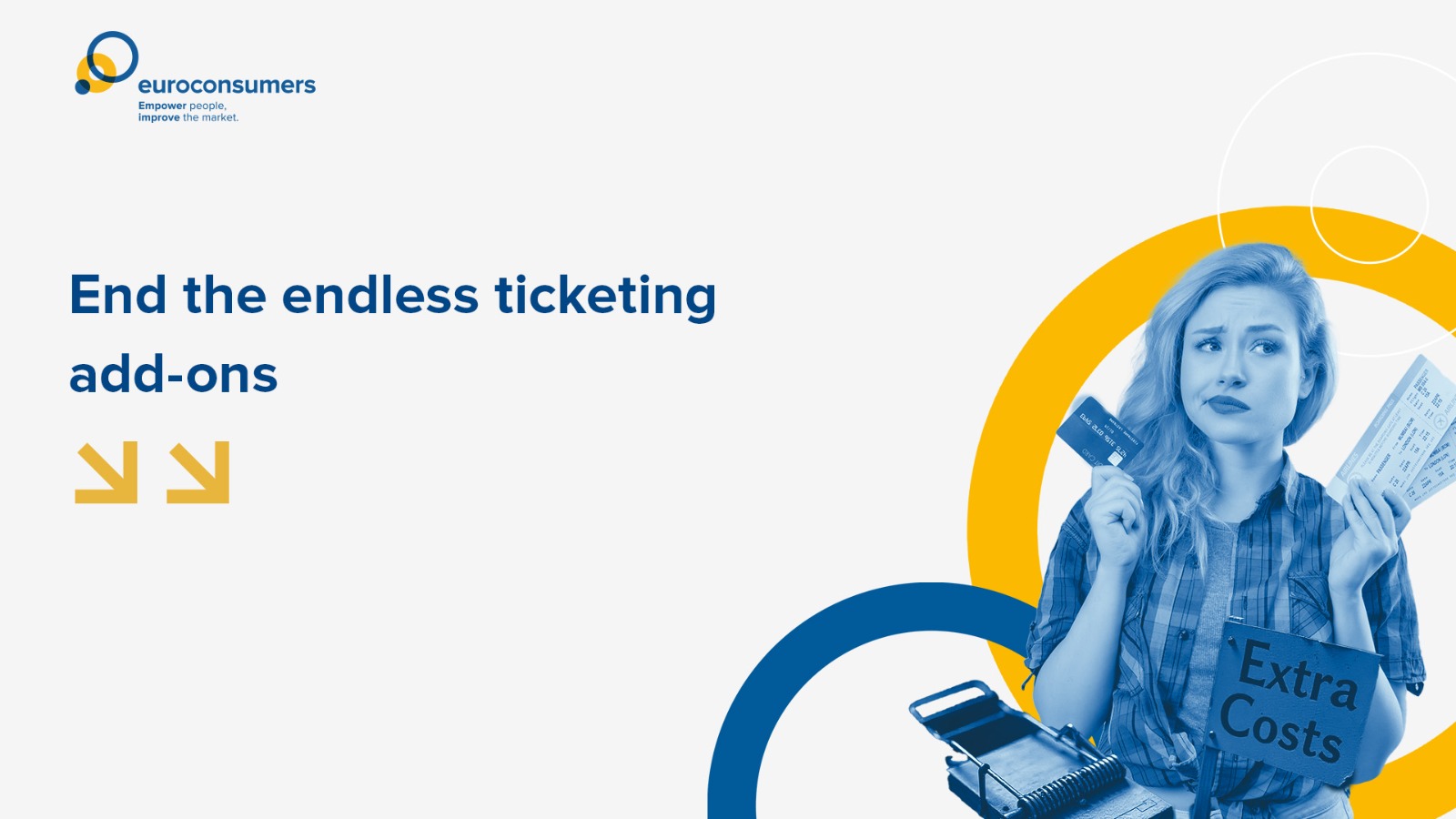Euroconsumers is committed to ensuring that live events are accessible and fair for all and that starts with fair pricing. Experiencing a concert or sporting event should be a priceless moment, not an opportunity for profit-driven exploitation.
Following on from our campaign against unfair dynamic pricing practices in the primary ticketing market, and our members’ work on endless add-on fees, our latest action focuses on the secondary resale market.
What does the DSA say about secondary ticketing platforms?
First, let’s look at the regulatory context for ticket resale sites. Since February 2024, secondary ticketing platforms serving the EU have to follow the Digital Services Act (DSA)
Compliance with the DSA’s provisions should make purchasing tickets in the secondary market fairer, safer and more transparent: manipulative sales tactics are banned, sellers must be verified, under 18s protected and complaints handling systems made clear.
However, Viagogo, one of the biggest players in this market, has failed to comply with several key provisions of the DSA legislation. Euroconsumers’ legal team has found consistent contraventions of key consumer protections in the DSA, leaving ticket buyers exposed to manipulation and high prices.
Euroconsumers complaint to the Irish Digital Authority
Yesterday, Euroconsumers brought an official complaint concerning transparency and consumer protection at Viagogo to the Irish Digital Services Coordinator in its position as the competent authority.
The complaint identified several practices which add up to systemic and pervasive non-compliance with the DSA. These are not isolated technical glitches or oversights, but appear to be baked into the way the company operates and designed into buyer and seller-side interfaces.
• Lack of algorithmic transparency in recommendation systems: under Article 27 of the DSA, platforms with recommendation systems like Viagogo’s ‘recommended for you’ feature must be very clear about how and why content and offers are shown to people and give users the option to opt-out of the feature. But on Viagogo, there’s no explanation of the main parameters behind recommendations, or any way to reset them or opt out of receiving information this way. And by keeping its recommendation parameters secret, consumers can’t get the full picture they need to make an informed decision. This gives Viagogo the opportunity to distort what’s on offer on the market and direct people towards buying the tickets that make them the biggest profit.
• Failures in trader identification and traceability: Article 30 is critical to the safe functioning of marketplaces as it requires that key information about ticket sellers (including name, address, phone number and registration details) are provided to ticket buyers. Platforms must also make their “best efforts to assess whether the information provided is reliable and complete”. On Viagogo there is a near-total absence of publicly available information which strongly suggests that Viagogo may not have obtained or verified this mandatory data.
• Manipulative interface design: Viagogo breaches several provisions in Article 25 which prohibits platforms from “designing, organizing, or operating their interfaces in a way that misleads, manipulates, or significantly impairs the consumer’s ability to make free and informed decisions” or in other words, dark patterns. Here’s some of the tactics revealed by the analysis:
- • False scarcity and false urgency: some listings suggest tickets are running out, for example, Euroconsumers found listings that claim only one ticket was available, but after following the link found that six tickets were on offer. The platform also puts pressure on buyers to complete their purchase within a 10 minute window with repeated prompts to “complete your purchase now to guarantee your tickets at this price” after only 30 seconds. This tactic is pure manipulation, suggesting that the price will rise unless a quick sale goes through, despite it being guaranteed for the full ten minutes remaining.
- • Misleading presentation and pricing: the platform makes use of labels like ‘cheapest’ and icons like a green downward arrow to highlight certain offers and place them higher up, even when cheaper offers for the identical event are visible just down the list. This practice deliberately goes against the principle of informed decision-making by steering consumers toward more expensive choices.
- • Failure to protect minors: Article 28 of the DSA requires online platforms to take measures to ensure a high level of privacy, protection, and safety for under 18s using their service. However, Viagogo does not collect age-related information during registration, account creation, or guest purchases or require users to self-declare their age to access the platform. This lack of age verification or protective safeguards leaves minors exposed to aggressive sales tactics and non-transparent algorithmic recommendations, in clear violation of the DSA’s mandate for robust user safety and protection standards.
• Infringement of terms and conditions and transparency requirements: finally, under Article 14(1) of the DSA, intermediary service providers must include clear, simple, intelligible, and unambiguous information regarding restrictions on service use in their terms and conditions. T&Cs must also contain clear policies related to content moderation, including algorithmic decision-making, human review and the procedural rules of their internal complaint management system. After looking at Viagogo’s terms and conditions on different national websites, no information was found relating to the tools used for content moderation or how the company deals with complaints. And on the Spanish website, some contractual clauses are only available in English.
You can read the complaint with detailed examples of the breaches described here.
Use full DSA powers to change Viagogo practice
Euroconsumers is requesting the Irish DSC authority to make use of its full statutory powers to launch a comprehensive, cross-border investigation under the DSA. Specific requests include:
- • Ordering Viagogo to stop all non-compliant practices and system design features that manipulate consumers.
- • Impose corrective remedies which could include: redesign of the user interface, implementing rigorous seller identification and verification checks, and bringing in robust and verifiable measures to ensure users aged under 18 are fully protected from harm
- • Financial sanctions: given the systemic and deliberate nature of the breaches, which directly facilitate illegal economic activity, the DSC should use the fining powers of the DSA to impose fines up to 6% of the worldwide annual turnover of Viagogo and impose penalty payments for delays to complying with remedies and interim measures.
The DSA is a landmark legislative tool with the power to safeguard consumers’ rights in a world of online platforms where relationships between buyers and sellers are remote and often opaque, and algorithms drive what offers consumers get to see.





